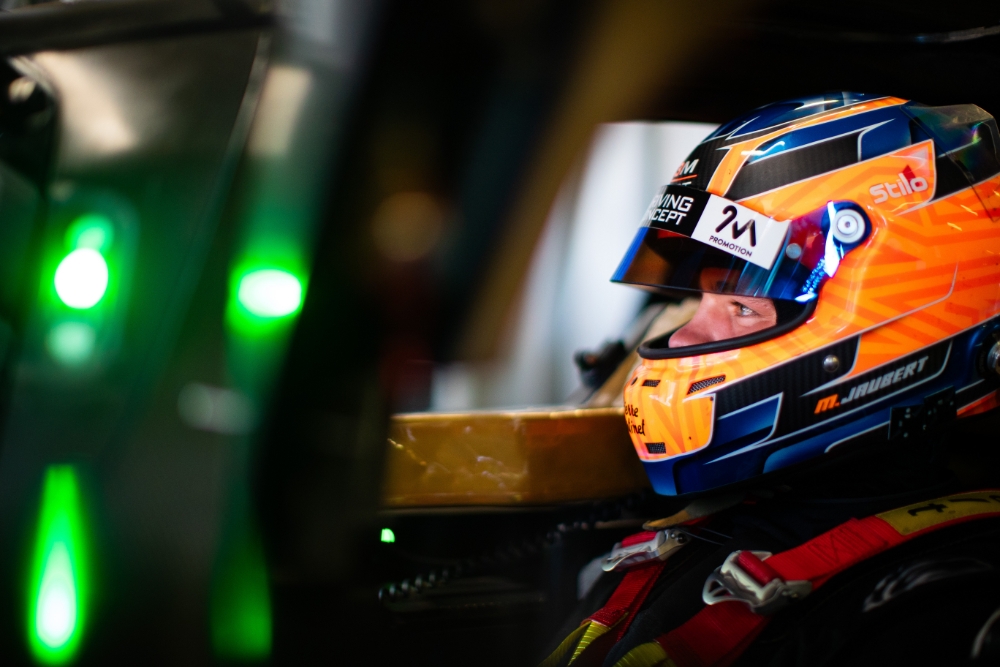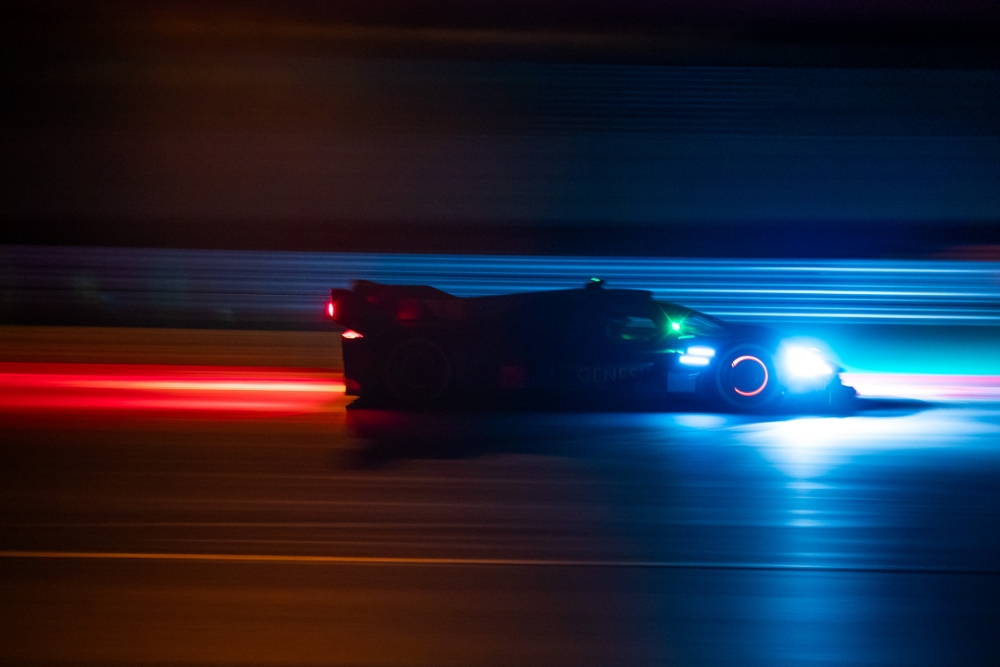The Genesis GMR-001 LMDh prototype has successfully completed its first-ever endurance test with the Genesis Magma Racing team.
The Korean brand put its 2026 challenger through its paces across three days at the Autódromo Internacional do Algarve in Portugal, which allowed for 32 hours of continuous running.
With temperatures climbing above 30 degrees during the day and running extending through the night, the program pushed every component of the car to its limits at the Portuguese circuit.
“The main target of an endurance test is to put miles on the car and see what problems you can generate along the way,” said chief engineer Justin Taylor. “At this stage, you’re hoping for issues so that you can solve them. We did a lot of mileage and learned something new with every stint, which will carry into our next tests.”
The driver lineup for the test included Genesis’ newly minted Hypercar factory drivers Mathus Jaubert and Dani Juncadella, alongside André Lotterer, Pipo Derani, who have been with the program from the start.
For Jaubert and Juncadella, the outing marked their first laps in the Hypercar after stepping up from the team’s trajectory program in the European Le Mans Series with French LMP2 team IDEC Sport.
“Driving the GMR-001 for the first time was something very special,” said Jaubert. “It’s much more powerful than anything I’ve driven, but still easy to find the rhythm. Since I was very young, I’ve dreamed of racing in the highest class of endurance racing, and now I’m here.”
Juncadella added: “I think as new drivers to the project Mathys and I can support a lot with feedback. Even though I have no experience in the Hypercar class, I do have a lot of experience in endurance racing with different manufacturers.
“I’ve been working in high-performance environments for many years in my career and can bring those different experiences to the development.”
Derani, meanwhile, underlined the importance of using the test to stress components:
“It’s a brand-new car, and we need to see if the parts can last long enough. If we find weak points, we can improve them. Next year our big race is a 24-hour, so everything builds towards that.”
The Algarve test provided the first real opportunity to assess the GMR-001’s cooling package under high ambient temperatures, along with the performance of its 3.2-litre twin-turbo V8 powertrain. Running into the night also allowed the team to validate its bespoke headlights, which feature the Genesis “Two-Line” design seen on the brand’s road cars.
“We quickly realised that our lights are very good,” Lotterer said. “We decided to develop our own to keep the Genesis design identity, but also needed the quality. Signing that off so easily was very positive.”
Drivers also completed long double and triple stints, offering feedback on cockpit comfort and allowing engineers to gather critical data on tyre behaviour and stint energy management in line with WEC regulations.
The integration of Jaubert and Juncadella into the Hypercar project has already paid dividends, according to sporting director Gabriele Tarquini.
“They really enjoyed their stints and provided very good feedback,” he said. “Portimão is physically demanding, but both did a great job and confirmed the direction of our early development.”
Genesis Magma Racing will now shift focus to performance-based testing before returning to endurance running later this year.
“Our next tests are going to be about adding performance,” Taylor concluded. “We’ll have more opportunities to change calibrations, software, and parts, and then put all of that through another endurance test.”

